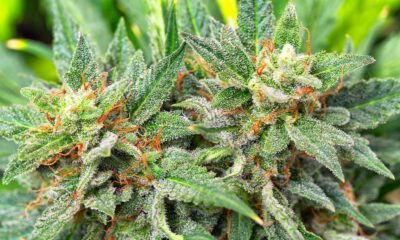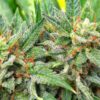
Joint Opinions
Edibles Bans Are Based on Paranoia
Infused marijuana products are facing stricter regulations than other substances that can be more harmful.
Children are small humans who like to eat things. Sometimes, a child will put a thing that is bad or not food into their mouths.
Adults, it turns out, also like to eat things — sometimes, things that are good for the adult but bad for the child. There are other times that a child human will want to eat or try to eat something an adult human also wants to eat, but shouldn’t.
And that is where chaos ensues and when our society begins to collapse inwards onto itself — and how specious and baseless assumptions about marijuana edibles become official government policy.
Increasingly across the country, edibles are becoming a third rail, either strictly regulated in a manner that resembles long-overdue restrictions on tobacco marketing, or banned outright as a concession towards the prohibition set.
Not only are these restrictions knee-jerks rooted in fear and paranoia rather than data, they are potentially causing real harm to marijuana patients with a real need for marijuana in an appealing edible form.
But much more than that, they are demonstrations of how far anti-marijuana zeal can carry government towards a prohibition mindset in the legalization era — the cannabis equivalent of a plastic-straw ban, if only curly and bright-colored straws were banned.
In Washington, the state Liquor and Cannabis Board has announced that it will “reevaluate” its rules governing edible cannabis products. The problem, according to the Seattle Times, is that some marijuana products on the market may appeal to children. Some products must be resubmitted to the state for approval by Jan. 1, but it appears that most edibles sold in many dispensaries will be outlawed as of next April 3.
The state already has a blanket ban on cannabis products that are “especially appealing to children,” according to the paper, but apparently this does not go far enough — and Washington marijuana retailers currently sell marijuana-infused hard candies and “gummy type” products.
For now, according to regulators, baked goods that are not cookies and drinks that resemble, say, sodas will be allowed. As for chocolates, mints, baked goods that are cookies, they will be approved on a case-by-case basis. Whether they are approved will “depend on factors like frosting, sprinkles” and their color.
Over in Utah, terminally ill patients were earlier this year granted the “right to try” “medical-grade cannabis,” so long as it was not in “edible or gummy” form. And this month’s landmark agreement between the backers of a popular medical marijuana measure and the state’s Mormon-dominated political power structure also banned edibles outright — that is, if it survives the state Legislature.
There, lawmakers will get an earful from Drug Safe Utah and its bankroller, a real-estate developer on a jihad to ensure that medical cannabis in no way appeals to children. So committed to this notion is real estate mogul Walter Plumb III that he’s spent more than $200,000 of his own money already to shape policy and suggested to the Salt Lake Tribune that no human under 25 should use cannabis in any form.
What factual basis there is for treating cannabis edibles as ticking time bombs just waiting to explode in a young child’s brain seems rooted in a few things, neither of which really justify the reaction. The first is how cigarette companies used cartoons and bright packaging to appeal to children, who — if addicted at, say, the age of 12 or 13 —were their potential customers for life.
The second is actually marijuana-related. From 2000 to 2013, 1,969 cases involving children younger than 6 who had been exposed to cannabis were reported to American poison control centers, according to a study. About half received some form of medical treatment, and just under 20 percent had to be admitted to a hospital. That’s not good, but it’s also 400 kids over a 13-year span.
In Canada, where we have more recent data, the numbers are similar: In Alberta and Ontario, 582 people under the age of 20 were admitted to an emergency room for “cannabis poisoning.” Of these, 24 were under the age of 5.
The point is not that small kids should eat weed — they should not. The point is that kids have a strong tendency to put stuff that’s lying around in their mouths, and no amount of government bans appears able to stop that particularly alarming trend despite other common household products killing kids.
Here are some other things that kids also ingest: mouthwash, pesticides, cleaning fluids, and lamp oil. All of these have either killed children or severely damaged their health. Not a single one is illegal and there are no clarion calls in media for them to be more strictly regulated.
Actually, that’s false — there have been calls to more strictly regulate mouthwash, which has absolutely killed kids, but lawmakers were slow to respond. They should have put a pot leaf on it.
TELL US, what are your thoughts on banning certain edibles thought to appeal to children?

























